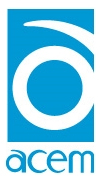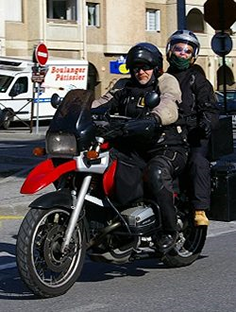Motorcycle Industry welcomes vote of the European Parliament on the Type Approval Regulation
ACEM calls on Commission for a swift publication of the delegated acts to ensure manufacturers sufficient lead time
 The European Parliament approved today with 643 votes in favour, 16 against and 18 abstentions, the Regulation on Type Approval and market surveillance of two- or three-wheel vehicles and quadricycles.
The European Parliament approved today with 643 votes in favour, 16 against and 18 abstentions, the Regulation on Type Approval and market surveillance of two- or three-wheel vehicles and quadricycles.
Two years after the publication of the proposal by the European Commission, the vote approved the compromise text simplifying the calendar seeking to give manufacturers the necessary lead time to prepare for the entry into application of the regulation in a particularly difficult economic context. To allow for a first reading agreement, the new regulation still has to be formally approved by EU member states.
The regulation aims at upgrading safety and environmental requirements for 2-, 3-, and 4-wheeled vehicles of the L-category (mopeds, scooters, motorcycles, tricycles, and quadricycles) with the final goal of achieving parity with cars as regards the containment of polluting emissions by 2020. Prescriptions range from mandatory ABS for motorcycles above 125cc, to greener mopeds and motorcycles and new type-approval procedures.
According to the approved compromise, moped and light quadricycles new types will already adopt the EURO 3 emission stage in mid-2014, via comitology. The new regulation will introduce EURO 4 emission limits for motorcycles, tricycles and heavy quadricycles in 2016 for new type approvals (2017 for all vehicles) and one year later for mopeds and light quadricycles. In conjunction with the EURO 4 stage for motorcycles, ABS will become mandatory on all vehicles above 125cc. All L category vehicles are expected to meet the EURO 5 limits by 2020 for new type approvals (2021 for all vehicles).
Wim van de Camp, MEP EPP, Rapporteur for the regulation, and main supporter of the rationalisation of the proposed calendar from three to two emission stages, has urged the Commission to stick to the principle of simplification, recommending the swift conclusion of the legislative process on the main regulation text. He further underlined the need for early availability of the delegated acts, which are still under development and contain technical and administrative details, necessary for industry to develop vehicles compliant with the new regulation within the agreed dates.
Antonio Tajani, Commissioner for industry, also underlined the need for a simplification of the legislation and committed to making swift progress on the delegated acts.
ACEM, the Association representing the Motorcycle Manufacturers in Europe, welcomes the outcome of the vote, as early visibility on upcoming requirements is fundamental.
ACEM furthermore appreciates that the Rapporteur highlighted the importance of a comprehensive environmental study, being carried out by the Commission by 2016, considering the appropriateness of the Euro 5 stage.
For a comprehensive and fair evaluation, not only the share of pollutants contributed by L-category vehicles must be part of this assessment, but also other aspects, such as technical feasibility, lead-time, and overall cost efficiency.
These principles were underlined again recently by the CARS21 process, as being fundamental to long term competitiveness of the European automotive industry which includes the motorcycle sector.
Jacques Compagne, ACEM Secretary General: “I’d like to thank Mr van de Camp and all the shadow rapporteurs for their efforts in delving into such complex technical issues and reaching a compromise with the European Council.
Motorcycle Manufacturers now call on the European Commission for a quick progression of the delegated acts, in close consultation and cooperation with stakeholders, so that all necessary measures can be implemented in order to start production planning of vehicles complying with the new type approval rules. Complex technical issues such as environmental propulsion performance, vehicle functional safety, vehicle construction, as well as administrative requirements still need to be tackled before manufacturers can actually apply the regulation”
Original Source – ACEM – Click Here
About ACEM
ACEM, the Motorcycle Industry in Europe, is the professional body representing the interests and combined skills of 13 powered two wheelers (PTWs) manufacturers producing more than 30 brands, and 15 national associations out of 13 European countries, employing over 150.000 people.
The aggregated turnover of the PTW sector (manufacturing, plus upstream and downstream activities) amounted to Euro 34 billion in 2008. Manufacturers alone account for Euro 7 billion.
The members of ACEM account for 90% of the production and up to 80% of the European powered two-wheeler market. ACEM also represents main manufacturers of tricycles and quadricycles.
Read and comment on Right To Ride EU – Click Here


